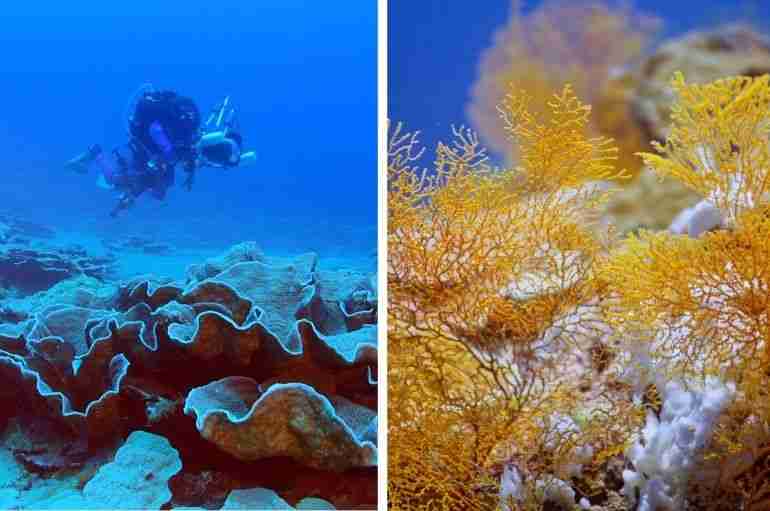Scientists Have Discovered A Rare And Massive Coral Reef At An Unprecedented Depth Near Tahiti
A UNESCO-backed scientific research team has discovered and mapped out a massive reef of rare rose-shaped corals off the coast of Tahiti at unprecedented depths.

A UNESCO-backed scientific research team has discovered and mapped out a massive reef of rare rose-shaped corals off the coast of Tahiti at unprecedented depths.
The newly-uncovered coral reef, which is still unnamed, spans around 3 kilometers long and between 30 to 65 meters wide.
The pristine rose-shaped corals appeared to be unharmed by climate change, and scientists believe the corals may have been protected from bleaching effects due to its deep depths.
“It was magical to witness giant, beautiful rose corals which stretch for as far as the eye can see,” Alexis Rosenfeld, a French underwater photographer who led a team of divers that made the discovery, said.
According to UNESCO, most coral reefs are in warmer waters at depths of up to 25 meters.
However, this coral reef was found 70 meters below the surface around the ocean’s “twilight zone,” where there is just enough sunlight for the corals to grow and reproduce.
“We know the surface of the moon better than the deep ocean. Only 20% of the entire seabed has been mapped,”
UNESCO Director-General Audrey Azouley said.
“This remarkable discovery in Tahiti demonstrates the incredible work of scientists who, with the support of UNESCO, further the extent of our knowledge about what lies beneath,” she added.
Widespread coral bleaching events have occurred over the years as a result of heatwaves and acidification. Since 1950, over half of the living corals known to the world have been lost.
This latest discovery suggests that there are more deep-sea corals at depths of more than 30 meters. UNESCO plans to study how reefs continue to thrive under harsh environments intensified by human-caused climate change.
“We think that deeper reefs may be better protected from global warming,” a marine biologist with the French National Center of Scientific said.
“So the discovery of this reef in such a pristine condition is good news and can inspire future conservation.”




